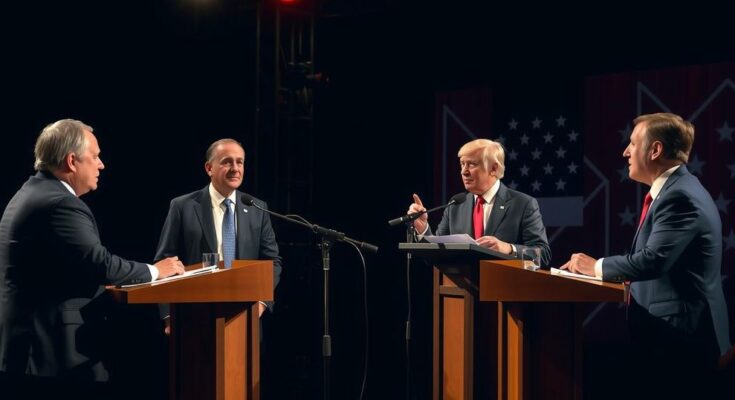International relations experts have noted significant differences in foreign policy approaches between Vice President Kamala Harris and former President Donald Trump. The survey conducted among IR scholars revealed strong confidence in Harris’s ability to effectively manage foreign policy challenges, with expectations that her presidency would result in greater international cooperation and higher military assistance to allies, particularly Ukraine. In contrast, Trump is anticipated to withdraw from critical international agreements and adopt a more isolationist stance, leading to substantial implications for U.S. foreign policy post-election.
In the run-up to the 2024 U.S. presidential election, international relations (IR) experts have identified clear distinctions between the foreign policy approaches of Vice President Kamala Harris and former President Donald Trump. Conducted by the Teaching, Research, and International Policy Project at William & Mary’s Global Research Institute, a recent survey encompassing 705 IR scholars indicated that the outcome of the election is poised to significantly influence U.S. foreign policy. Notably, the scholars predict that Trump’s administration would likely withdraw from key international agreements such as the Paris Agreement, with an 80 percent estimated probability, and NATO, with a 38 percent probability. Conversely, Harris is viewed as exceedingly unlikely to make such withdrawals, assigned probabilities of merely 4 percent and 1 percent, respectively. The survey further anticipates a 35 percent chance of reaching a nuclear agreement with Iran under Harris’s leadership but only 7 percent under Trump. Similar disparities in outlook were observed regarding U.S. trade policies, foreign assistance, and military aid dynamics towards allies like Israel and Ukraine. On military engagement, the experts predict a potential increase in military aid to Ukraine under Harris (63 percent) compared to Trump (16 percent). However, they also noted a limited effect of the presidential election on the frequency of U.S. military interventions abroad, with 44 percent believing deployment levels would remain unaffected regardless of the outcome. While the survey reveals a consensus that either candidate could impact various foreign policy issues, Harris is overwhelmingly preferred by IR experts in terms of effectiveness and competence in managing foreign policy challenges, with 92 percent favoring her over Trump. Only 8 percent expressed confidence in Trump’s ability to manage these issues effectively. This perception, mirrored in the expert community, underscores the significant implications the election results could have on the United States’ global interactions and standing.
The significance of foreign policy in the U.S. presidential election is underscored by its historical implications on international relations. Despite traditionally taking a backseat during election cycles, experts believe the upcoming election will yield substantial consequences for U.S. foreign policy. A recent survey conducted by the Teaching, Research, and International Policy Project, with the backing of the Carnegie Corporation, sought to quantify the insights of international relations scholars on the matter. The responses from 705 participating scholars provide a revealing look into the contrasting foreign policy perspectives of Vice President Kamala Harris and former President Donald Trump.
The insights gathered from the survey of international relations scholars illustrate pronounced differences between Vice President Kamala Harris and former President Donald Trump in their potential foreign policy directions. Harris is consistently viewed more favorably in terms of effectiveness, international cooperation, and the ability to manage foreign challenges. The broader implications of these differences extend beyond electoral politics and may significantly influence America’s relationships and operational strategies on the global stage following the election on November 5.
Original Source: foreignpolicy.com




